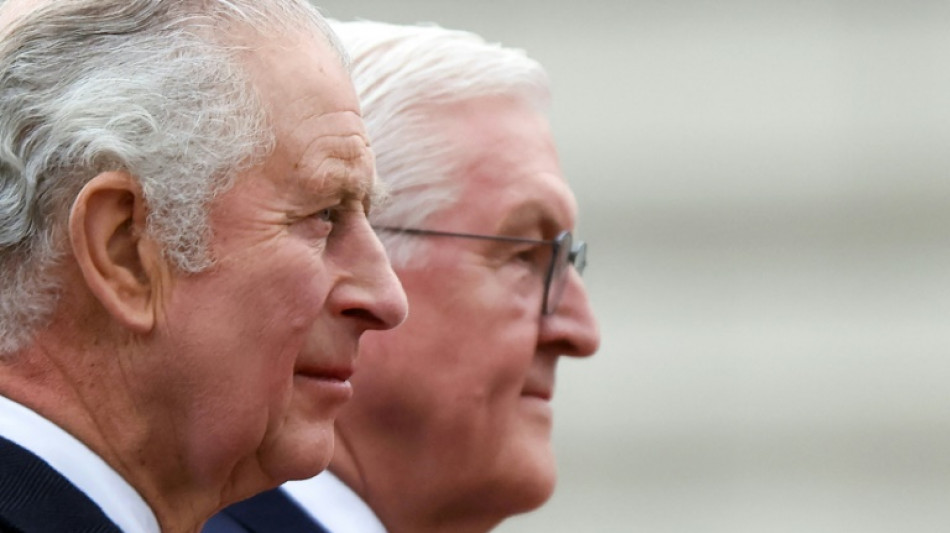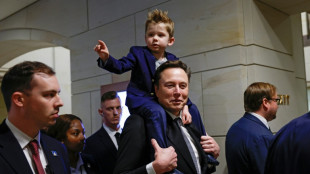

Charles III to commemorate victims of Allied bombings in Hamburg
Britain's King Charles III will commemorate German victims of World War II Allied air raids on Friday, a gesture carrying great significance for both countries.
On the third and final day of his first state visit since ascending the throne, the monarch, accompanied by German President Frank-Walter Steinmeier, will visit the St Nikolai memorial in Hamburg, where he will lay a wreath.
The move in the ruins of a church will be unparalleled for a British sovereign.
During her visit to Dresden in 1992, eggs were flung at Charles' late mother Queen Elizabeth II after she failed to get out of her car to lay a wreath at the rubble of the Frauenkirche -- a symbol of wartime destruction.
Germany's biggest-selling daily Bild said Friday's action by Charles "will be a silent gesture, a brief bow, a silent prayer. But that will say more than any speech".
The issue of German suffering in World War II is historically and politically explosive.
Wracked with guilt over the murder of six million Jews, mainstream Germany shies away from discussing suffering by Germans during the war.
The air raids, which were among the most controversial actions taken by the Allies, were designed to terrorise the population and force a surrender. But they killed tens of thousands of civilians.
The far-right often cites the memory of the bombings to measure German suffering against Nazi guilt.
- 'It matters' -
Hamburg and Dresden were among the most heavily bombed cities in Nazi Germany.
On July 24, 1943, Britain and the United States began raiding Hamburg in what was described as a "Blitz week", with the Royal Air Force striking by night and the US forces bombing by day.
Codenamed Operation Gomorrah, some 9,000 tonnes of explosives were unleashed, killing more than 30,000 people and leaving the port city in rubble.
During the raids, the St Nikolai church tower was used as a landmark by bomber pilots.
Originally designed by English architect George Gilbert Scott, who restored London's Westminster Abbey, St Nikolai has been left in its ruined state and now houses a WWII memorial and museum.
The themes of reconciliation and a future forged by common values have featured prominently during Charles' three-day visit, widely interpreted as a bid to build bridges after Brexit.
Charles, who has blood ties to Germany, has visited the European giant more than 40 times.
But during his trip as king, he managed to score several firsts, including becoming the only monarch to address the German parliament.
In a commentary for the Guardian, Hamburg-based historian Helene von Bismarck said Charles' stop at the memorial is more than just another photo op.
"For the king to join in this remembrance is a very significant, and much appreciated thing to do," she wrote.
"At a time when many politicians all over the world like to pick and choose from history with the sole aim of suiting their narratives, it matters."
A.M.Ruiz--ESF




